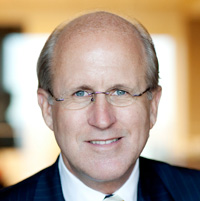Whoever wins today's presidential election, the US faces the challenge of rebuilding its infrastructure and creating a more sustainable future. To do that, politicians will need to set aside their partisan differences
A little over a week ago the east coast of the US was hit by the superstorm Sandy, which caused widespread destruction and some loss of life. The responses from most elected officials prove that, irrespective of their party affiliations, politicians can work together in times of crisis.
While their Sandy related actions have been commendable, it is frustrating that US politicians can only seem to work together after a crisis has occurred rather than working to avoid such crises, including fiscal ones, in the first place.
Today is Election Day in the United States and the outcome will set the course for our nation’s future. We face many key sustainability challenges and whoever wins the presidential election must be ready to provide committed, inspired and courageous leadership to help us effectively address them.
Our non-parliamentary system requires extraordinary presidential leadership in a period when people need to be rallied and tough societal choices must be made.
While Sandy serves to reinforce the need to seriously address the climate change issue, it also sheds light on the deteriorating infrastructure in the US. Our existing infrastructure suffers from deferred maintenance, and now with Sandy's aftermath there are even more repairs needed.
The hard truth is that the US has also fallen behind most industrialized nations in developing a more modern infrastructure.
Updating our infrastructure system could help improve economic growth, employment opportunities and our competitive posture. It could also serve to help in the climate change fight through reducing energy consumption and moving to more alternative sources of energy.
Unfortunately, the US is one of the few countries in the world that does not have an infrastructure plan and where targeted tax revenues do not support the costs of its federal transportation system.
In the US, transportation accounts for nearly 75 per cent of the country's oil consumption. This creates a huge fiscal burden.
To begin fixing our growing infrastructure problems the US needs to make targeted additional investments in infrastructure in an effective and fiscally responsible manner. An example of one such investment would be in high-speed rail, for selected parts of the country where that make economic and environmental sense.
Another would be modernizing our energy distribution system for both conventional and alternative forms of energy.
Regrettably, most decisions about transportation and infrastructure are not based on any forward looking plan and have been highly politicized. This approach is a prescription for waste, inefficiency and ineffectiveness. It must end.
Sandy was a natural disaster and we must do what it takes to recover. At the same time, we need to learn lessons and create plans to help restore fiscal sanity, address climate change, and improve our critical infrastructure.
Irrespective of who wins today's elections, Washington policymakers need to work together to address the many challenges we face. It's time for them to put aside partisan differences and bridge the ideological divides - to prevent crises, and to do what is right for America and Americans.






